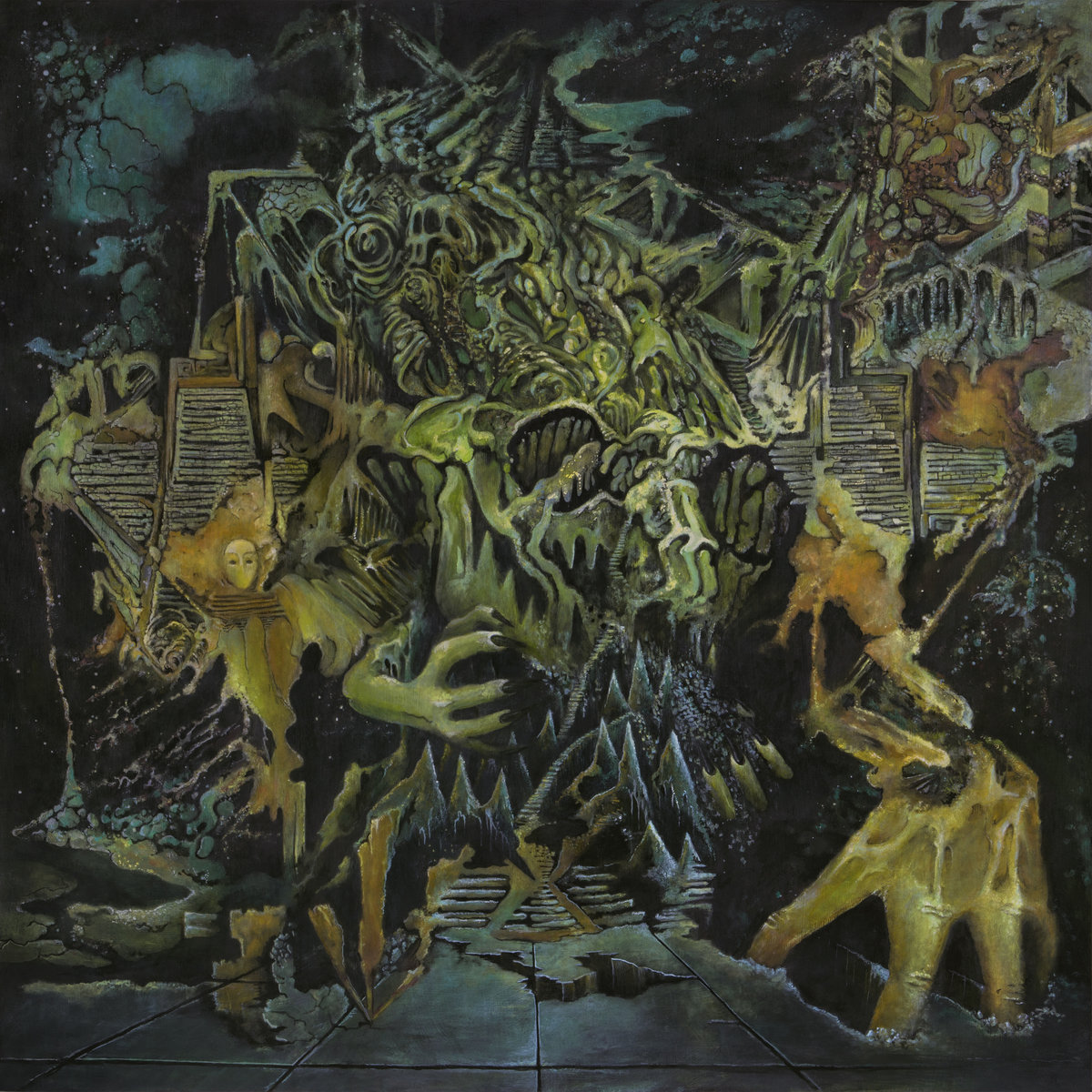Karl Knuttel – or Bear Worship, to use his professional name – has just released his nine-song debut album, WAS. It’s an exotic, hypnotic record that seems to exist in a time and place all of its own. Here, he talks to David Turpin about the process of making the album.
I’d like to ask about the title of the album, WAS. It’s a very emphatic one-word title, and yet it also happens to be a very ambiguous word.
I guess what I wanted to represent with the title is that every person wants to feel like they matter. Making art or music is cathartic, enjoyable, and all that other stuff, but putting it out into the world is also a way of saying “Look at me. Look what I made!” It’s about a search for approval and validation and a feeling of belonging with our peers. I’m pretty bad at interpersonal stuff and communicating and all that, so I try to explain myself through my music.
There’s also this sense of immortality with art. Like a part of you goes on after you die. So many of my favourite musicians are dead, and there’s something wonderful and spooky about being able to connect with someone who’s no longer there, yet who’s present when you hear them sing. I’m under no illusions that tonnes of people are going to listen to my record. But there’s always the chance that sometime, someone might find this record in a dusty corner of the internet and have that experience.
That’s interesting, because one of the things that strikes me about the album is how ‘out of time’ it sounds. It doesn’t sound like a ‘2017 album’, whatever that may be, but it also doesn’t sound like a pastiche of older records.
Music that sounds contemporary becomes dated really quickly. Plus if you’re trying to chase a sound or whatever, you’re too late because you’re already behind. But on the flip side, there’s something cool about dated sounding stuff. I love listening to music from the 80s and 90s which was cutting edge, but which now sounds very of its time. There’s a wonderful nostalgia in that. I think a lot of why the record sounds so out of time is the technology. I used old analogue synths and a crusty old analogue mixer, and took sounds and techniques from older records. But I tried to blend them with modern approaches and sensibilities. So it sounds not quite old, not quite new.
Bear Worship is essentially a one-man band, isn’t it?
Pretty much, yeah. The album was recorded between my own home studio and Stephen Shannon’s studio over about a year. At home, I did all the main synth parts, a lot of the production, and all the vocals apart from two tracks. A lot of vocals were recorded at two or three in the morning to get the vibe right. There’s something about late night recording I really like. I’d finish some tracks to a certain point and then bring them to Stephen and we’d work on them more. Stephen’s fantastic, a really incredibly talented guy. He took what I’d done and just brought it up a number of levels. He played a kind of Brian Eno role in fleshing out the songs with sonic padding and ear candy. I’m ridiculously obsessive about getting things exactly how I hear them in my head, but we ended up with a really good working relationship and just had a great understanding of what the record should be. I’m hyper critical of my own work and am always obsessing over tiny details, but the record ended up being exactly how I wanted it to be. There are no compromises on there. Every tiny little thing was thought about and considered.
I think, with some people who produce their own music, the processes of writing and producing bleed into each other in an interesting way. You might say that the songs are shaped by the sounds, as much as the sounds are shaped by the songs. Do you ever find this to be the case?
That’s very true. When you’re ‘producing’ your own stuff the idea of a song becomes inseparable from how that song ends up manifesting itself. I don’t really sit down with a guitar or whatever and write a song that way. I have this idea in my head of all the different parts and the structure and stuff, so then the challenge becomes putting it down into something concrete. In fact, with a lot of my songs I’ve played it out in my head a million times before I play a note on an instrument. It’s a weird way to work, I guess.
With a band or whatever, one person has an idea and you jam stuff out and somehow everything comes together and in a way a lot of it is random – which can be really cool. But the way I do stuff, I have a very clear idea of what I want a track to be and very little comes down to happenstance. So there’s all these elements I want in the song, and it’s like a puzzle I have to try and solve. To me the song is inseparable from the production. The idea of doing an unplugged version of one of my tracks doesn’t make sense to me. The song is all of the stuff that’s going on in the track; the ear candy, the tension and payoff, the specific sounds, and the way it all comes together.
As well as the instrumental world of the album, there seems to be a love of language, and a love of the way music can make language unfamiliar again. The song titles alone are very evocative.
It’s cool that you noticed that. I love working within contrast, and one way to do that is by blending together words that are saying one thing with music that’s saying another. In pop music, the lyrics are often unimportant; they’re just vessels for the melody a lot of the time. I try to take that idea and subvert it by having lyrics that are densely packed with meaning. I try to look at what gives me meaning, what gives me a sense of wonder.
There’s also more impressionistic stuff. I write some songs with something very specific in mind, but the cool thing with language – especially if it’s ambiguous – is that meaning changes. Language is as much about a state of mind. The upshot is that some of the lyrics now mean something entirely different to me than what I originally intended. It’s almost like personal deconstructionism.
And yeah, I think song titles are important because they prime you for what’s to come, so they need to be succinct. For example, ‘Galapagos’ is about coming to understand that things you took as truth were just beliefs or folk knowledge, and the title sums that up perfectly for me: Darwin discovering evolution and revealing a more beautiful truth about the world.
Go here to stream/download WAS






